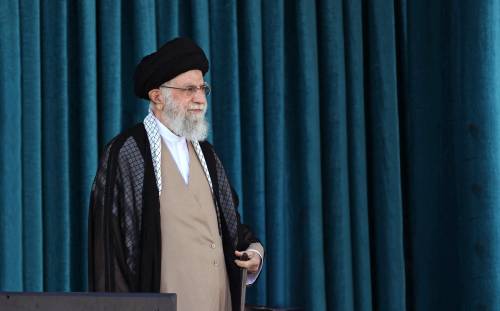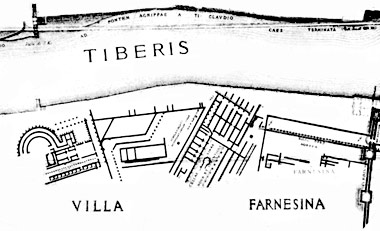→ the CLASSworks programme has been continuously running since it has been established and there is no end date planned. However, within the CLASSworks programme the individual school projects can be singled out. If a school is becoming a CLASSworks school, there is an implementation period of less than one year. During that time the school receives the equipment for a computer lab and initial teacher trainings. After that period the schools become project owners themselves and are able to run the project independently. Most of the times they close a service contract with the Viafrica service centre for maintenance of the computer lab CLASSworks schools become project owners and are independent after the implementation period is over. However, new implementations of the CLASSworks programme require initial funding. NB: Viafrica Business Solutions (VBS). VBS is an initiative of the Foundation Viafrica. It is a for profit organisation that sells hardware, software and ICT trainings. A large portion of its profit is going to support the activities of the Foundation and contributes to increase financial independence
Political unrest
The year 2008 started with political unrest in Kenya which resulted in riots and a very
insecure situation. Viafrica Kenya was very much affected. Our employees origin from
Nairobi and are Kikuyu. However the Viafrica Kenya office and the CLASSworks schools
were situated in Kisii which is a Luo area. The clash was between those two groups. The
Viafrica Kenya employees were put in a very insecure, and potentially life threatening,
position. In the Rift Valley, on the road from Nairobi to Kisii was a lot of violence against
“other” tribes. Next to this the situation in and around Kisii became very tense. People started
speaking their mother tongue instead of Swahili. Viafrica employees were therefore
constantly recognized as “aliens” and verbally harassed.
Viafrica took the decision to organise a training month in the Viafrica Tanzania office in
Moshi. The decision was made to await how the situation would develop and take further
decisions in February. At that time things luckily cooled down and, although still tense, were
workable. However, as nobody could predict how the situation on the longer term would
develop, Viafrica decided to move its office from Kisii to Nairobi. This decision was
communicated to the CLASSworks schools, which of course were disappointed but also
understood the decision. It was agreed that three times a year Viafrica Kenya employees
visit the schools for support. Something that proved very workable for both the schools and
Viafrica. The office in Nairobi was organised quite fast and early May Viafrica started
introducing the CLASSworks programme in deprived areas in and around Nairobi. This
resulted in 18 new CLASSworks schools in Kenya. All in all the political situation of early
2008 had a great impact on both the employees and the practical operation in Kenya.
However, the outcome is that there is a well Illustration 2: outside the new Viafrica Kenya
office in Nairobi established office in Nairobi and that all involved came out well.
Safety situation
Late 2008 and early 2009 saw a huge increase in robberies in Moshi. It is normal that before
Christmas and Eastern there is an increase as people need money for these days. However
the situation remained bad all over. Organised robberies are performed almost every night. It
became really close when the Viafrica guards told us that they were offered part of the profit
when they would cooperate with certain robbers. Luckily enough they decided to inform
Viafrica so that we could increase the security level even more. However in the same period
robbers went a few times for the private house of one of our employees. He faced eight
armed (knives and guns) guys who were looking for “the guy who worked with Wazungu”
(white people). Apparently they didn't know who exactly to look for and tortured the
neighbour, a very old lady, to tell them, without success. These guys have come back five
times during night but were scared away by the dogs and new guards. Although not
9
Viafrica's prime responsibility, the employees safety at home is an issue. The Viafrica
employees become targets because they work for a successful organisation. Where possible
Viafrica assist the employees to improve the security situation. Besides the district officer has
been informed about the situation.
Personnel changes
By the end of 2008 three Viafrica Tanzania employees left. All three choose for a career
somewhere else. Unfortunately Viafrica Tanzania didn't get the chance to negotiate with
them and keep them. Apart from one trainer, the other two just didn't appear any more. No
explanations, we can just guess for the real reasons. One of the reasons could be that other
NGO's offer much higher salaries as Viafrica does. Salaries for which they can never be
competitive in the local market. However this is not an issue for these organisations as they
are totally internationally funded. These developments are killing for the local economies as
the people with knowledge will no longer be interested in working for local companies with
local salaries like Viafrica Tanzania. We realise that we are an excellent place to start a
career, but that we will most likely not be able to keep our employees for years. There for
from early 2009 onwards we will make sure that we offer continuous internships in both the
Kenya and the Tanzania office. This pool of interns will be our buffer if we need new
employees. On the other hand, these internships are very useful for the interns as they
acquire practical knowledge and skills.
Some bottlenecks of CLASSworks
The current modus operandi is restricted by the following factors which we have to address
in order to be able to reach a next level of use with the schools.
Practice versus theory
Teachers have ample experience with computer teaching. Within the formal CLASSworks
training programme they acquire the basic knowledge needed to start training the national
ICT curriculum. However, this knowledge does not turn them into ICT teachers as there is
little time for practical teaching.
Teaching ICT requires different skills, however, in comparison to the more traditional
classes. It is more interactive, allows more exploration by the students and the possibilities
are much broader.
Rural context
The rural context of most CLASSworks schools makes it difficult for the schools to send
teachers and staff to the Viafrica training centre. It involves a lot of travel time and costs,
apart from the fact that most schools cannot miss their staff or teachers for days in a row.
Experience shows that organising training courses during school holidays does not work as
well as few teachers stay in the same area. Most of them visit family living all over the
country or have other activities.
Different levels at the schools
Not all schools are at the same level when it comes to computer use. Some have more
experienced computer teachers, they did not receive computers at the same time and
therefore use computers for a different period, schools have different demands, etc. It is very
difficult to match this with a standardised training programme that goes beyond basic use
which is currently the level of the Viafrica training courses.
Experience and expectations
Most schools have hardly any experience with computers and computer maintenance.
Neither teachers nor headmasters do exactly know what to expect in practice. Despite the
fact that Viafrica puts it on the agenda during seminars, headmasters and teachers still have
difficulties reporting faulty hardware, breakdowns or software errors to the Viafrica service
centres.
The result is that Viafrica discovers this only during the six-monthly on-site service visits. In
some cases computers were not used for months because of a faulty power socket which
1
could be fixed in five minutes. However as long as there are schools where headmasters
blame the computer teachers and hold them personally responsible, this behaviour will not
change.
Fear for the national rankings
Every school is ranked for the national examinations per subject/class. These rankings are
published annually and are publicly available. Viafrica noticed that schools were hesitant to
offer national examinations in computer science. The main obstacle was the lack of
experience and confidence with the subject and the fear that this would result in bad results
for the national examinations.
Part of the decision of parents for a school for their children is based on the national ranking.
A low ranking can thus result in fewer students and thus fewer school fees.
For all the above bottle necks a possible solution is to work more closely with the schools in
the school environment. The advantages are:
· work with all involved at the same time
· see the reality of the teachers and headmasters
· support the users during their daily work
· work for longer periods with the users
· offer assistance during classes
The future plans listed below give an idea of how Viafrica is planning to tackle these current
questions.
16.4 Future plans and wish list: Briefly describe future plans or ambitions for your
project and what you would require to make them true.
The strategy for CLASSworks is to go to the next level and stimulate the use of computers as
a tool within education. CLASSworks 2009 – 2011 is focussed on the facilitation of this next
step for most schools. Activities entail more on site support, training of more teachers and
staff at the schools and the development of cross subject materials.
Part of this strategy is to work in closer relationship with the governments. The Tanzanian
Education Authority is interested in a Memorandum of Understanding with Viafrica. From this
and other, more regional, cooperations we hope to get more leverage for CLASSworks.
Another important issue is to get accreditation of Ubuntu/the use of OpenSource for
examination of the national curriculum. Besides, other educational related solutions will be
explored. Viafrica has a programme for primary schools called KIDSworks that will be
launched early 2010. A solution for locations without proper infrastructure is also being
developed so that we can extend our activities to other areas in Tanzania and Kenya.
CLASS works Award: Good computer usage within the school environment has to be
stimulated from within the school. Therefore Viafrica challenges all Tanzanian schools with
two awards. From 2009 onwards, Viafrica grants anually an award to the school with the best
idea for the use of ICT within education and to the schools which perform best in the national
computer education examination. Prizes to win range from new computers for the schools to
free training courses at the Viafrica traning centres, memory sticks, certificates etc.
During a one-day event all CLASSworks schools can present their idea for the use of ICT
within education. Of course this idea has to be presented by electronic means. Most
important is that Viafrica will facilitate the further development of the idea and dissemination
to other CLASSworks schools.
The schools that perform best in the national computer education curriculum also receive
CLASSworks awards. The objective of this award is to stimulate schools to participate and
excel in the national examinations and thus enable their students to receive an officially
recognised examination score.
The objective of the CLASSworks awards is to stimulate schools to explore the possibilities
of ICT in the context of their school and share these with other schools. Furthermore,
schools should be stimulated to participate and excel in the national ICT examinations and
thus enabling their students to receive an officially recognised examination score.
CLASS works box: Another tool to stimulate the potential of ICT for education is the
CLASSworks box. This box is a set of learning tools, assignments and materials. Each box
has one subject that is approached from multiple points of view. The assignments are
focussed on exploring and developing competence based learning. The idea is that this
multidisciplinary approach supports the exchange between the subjects taught in the school
and shows the value of computers within the educational process. Students are encouraged
to use knowledge from different subjects to complete the assignments. The tasks are
performed both inside and outside the classrooms and focus on a team effort, the use of the
environment and alternative sources of information. Finally, the usage of the available ICTs
at the schools should not be restricted to the computer education lessons. Other teachers
should make use of these technologies as well in their respective subjects lessons.
E-learning platform: Viafrica is currently working on the development of an e-learning
platform that provides access to digital educational material for the CLASSworks schools.
This platform will be accessible through a server that will be installed at all CLASSworks
schools. The CLASSworks box will be linked to educational material that is available via the
platform.
Internet: Currently most CLASSworks schools do not have an internet connection because
they are located in rural areas and additionally internet access is generally very expensive.
Viafrica is looking for a payable solution for internet access in rural areas. This has been
made a topic together with the magazine Computable.
CLASSworks franchise: In the upcoming years, Viafrica hopes to be able to build more,
strong partnerships with local organisations in Africa who are interested in the CLASSworks
programme.
A well functioning knowledge transfer system in order to meet the educational needs of
present and future employees. Besides the already implemented knowledgesystems the
regional team in Tanzania has to develop further. This team is crucial for the local support of
the service centres. In 2008 the first steps have been taken. A new cooperation with the
company TOPdesk is being established. TOPdesk focusses on service management
systems that can be used at Viafrica's local offices.
A well functioning service organisation that can serve Viafrica's target group most
efficiently. In 2006 the grounds have been layed through an independent consultant. Since
2008 Viafrica has extended its cooperation with the company IT-staffing that sends
independent IT consultants to the local Viafrica service centres. Several of such missions
have already been completed and yielded important insights for improvements and further
professionalisation.
E-Waste: Viafrica will work further on awareness raising and solutions for e-waste. In
cooperation with the Technical University Delft and the organisation ICT~Milieu the possibilities
for a (pilot) project are being developed.


















